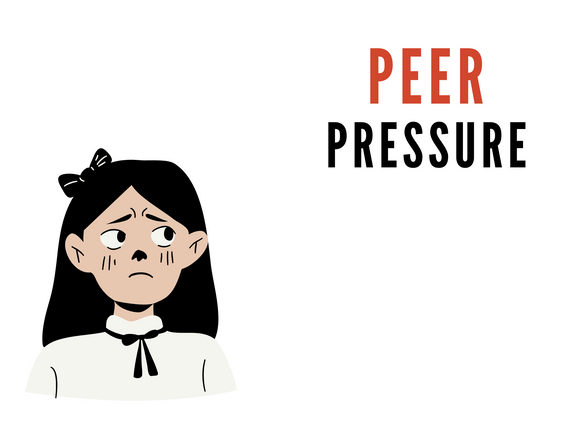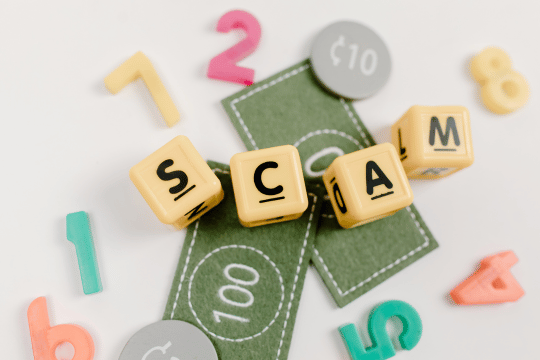Peer pressure is an emerging issue these days. With the world becoming more competitive day by day and the kids falling under the pressure to perform beyond expectations — it only gets more pestering for the kids to ‘stand out’.
The popularizing of social media is one of the biggest reasons why kids fall into the pit of peer pressure. However, social media and the internet are the things we cannot avoid. From even education going online — it is now impossible to safeguard our children from the social pressure that follows.

However, peer pressure is as common and as normal as it gets. You faced it, we faced it, and our kids will face it. There is no escape from peer pressure, but there indeed are things to help our kids deal with it.
Most kids want to be liked by all, want to be the centre of attention, feel like fitting in, and want to stand up to their parents’ expectations. They think that they will either be made fun of or will turn out as a disappointment for their parents by not doing so. The kids these days are scared of lagging and try their level best to exist beyond their tolerance.
Use the infographic below to know the best practices that can free up your child’s mind from all the societal pressures.

Here are these effective approaches in detail which you can use to help your child deal with peer pressure smoothly –
1. Understand what’s going on with your child
It is easy for every parent to tell their children that they are their friends. However, it is equally tough to maintain this bond. As a parent, you need to realize that once your child grows into someone who understands peer pressure and enters the phase of dealing with it, he/she needs a friend the most. Talk them out of their problem, and give them a relatable solution. Do not try to impose your thoughts on them; instead, try and understand where they are coming from. Avoid over-reacting on situations, no matter how bizarre they are. Gaining your child’s trust at this stage is the most important if you want to help them deal with peer pressure.
2. Stop comparing your child with your friend’s
Every child is different, and every household is different. Every kid is born with some social abilities, and not every kid can be good at everything. Ensure that you do not compare your child’s grades or talents with that of your friend’s. Comparing leads to unsolicited pressure on the child, leading to adverse tensions in a young mind.
3. Support your child through the difficulties by empathizing
If your child struggles through his/her class or cannot perform well in a particular activity — empathize with their situation. Tell them relatable stories from your childhood, how you failed at certain things but did not give up. Ensure that your child understands that he/she has his/her own set of things he/she is good at. And let them know that it is okay to fail, but it is not okay to give up!
Experts also suggest that it is not only your child’s friend circle or the society they live in that instils this situation of heavy peer pressure, but also how you act around your children
Set the right example in front of your child, if you are keen on keeping them away from the societal pressure that yields nothing but distress.
4. Create the environment at home that you want your child to follow
At a tender age, children tend to follow things they see at home. Make it a habit to normalize saying ‘no’ to situations you disagree with. Be firm, crisp, and short with your decisions and explanations. Ensure that your child knows when to draw the line and when to say no to his/her friends without worrying about what they would think about it. Instill a model displaying ‘no’, in order to help your child understand that it is absolutely okay to deny something they are not in favor of.
5. Practice how to be respectful while saying no
When you tell your child that it is okay to say no, you must teach them that it is equally important to be respectful while doing so. Give a few examples of ways to say no to your child, and practice with him/her. Make your child understand that he/she is better than the bullies, which is why being respectful while putting forward an opinion is necessary.
And lastly, follow these 3 mantras with your child to set them up for a stress-free, ‘be yourself’ lifestyle!
6. Be interested in your kid’s life, but not too much
Ensure that you know the kind of friends your child is hanging out with. However, do not become an overly-protective nagging parent, because kids surely do not like that. Invite your kid’s friends over for lunch, or allow them to have a stay over at your place. This will help you understand the types of friends your child has, which will also help you know your kid’s company. If you feel any of your child’s friend is not the right influence, simply have a chat with your child and let them know how you feel about it. Again, do not impose your thoughts on him/her. Instead, try and make them understand ‘why’ you think in a particular way for a specific friend of your child.
7. Tell your kids what peer pressure exactly is
Above everything else, it is crucial for your child to know what exactly is happening with them. Make them understand what peer pressure is and how common it is. This will help them realize that they are not alone, and all it is, is a phase of life. Give them a few handy tips on how to deal with it when you are not around, and ensure them that whenever they need you, you will be there to bring them out of it.
8. Welcome and understand positive peer pressure
Peer pressure is not always negative. Understand if your child is dealing with a peer pressure that is coming from something constructive. If your child’s friend pushes him/her to do something for his betterment, encourage it. Try and make your child understand how this will benefit them and enhance their developmental skills. Try to make your child understand the friend’s perspective and the idea behind pushing him/her. Let them know that if you were at the friend’s place, you would do the same. In fact, let them know that if you were the child, you would take it up as a challenge and not get pressurized by trying to achieve something new!











